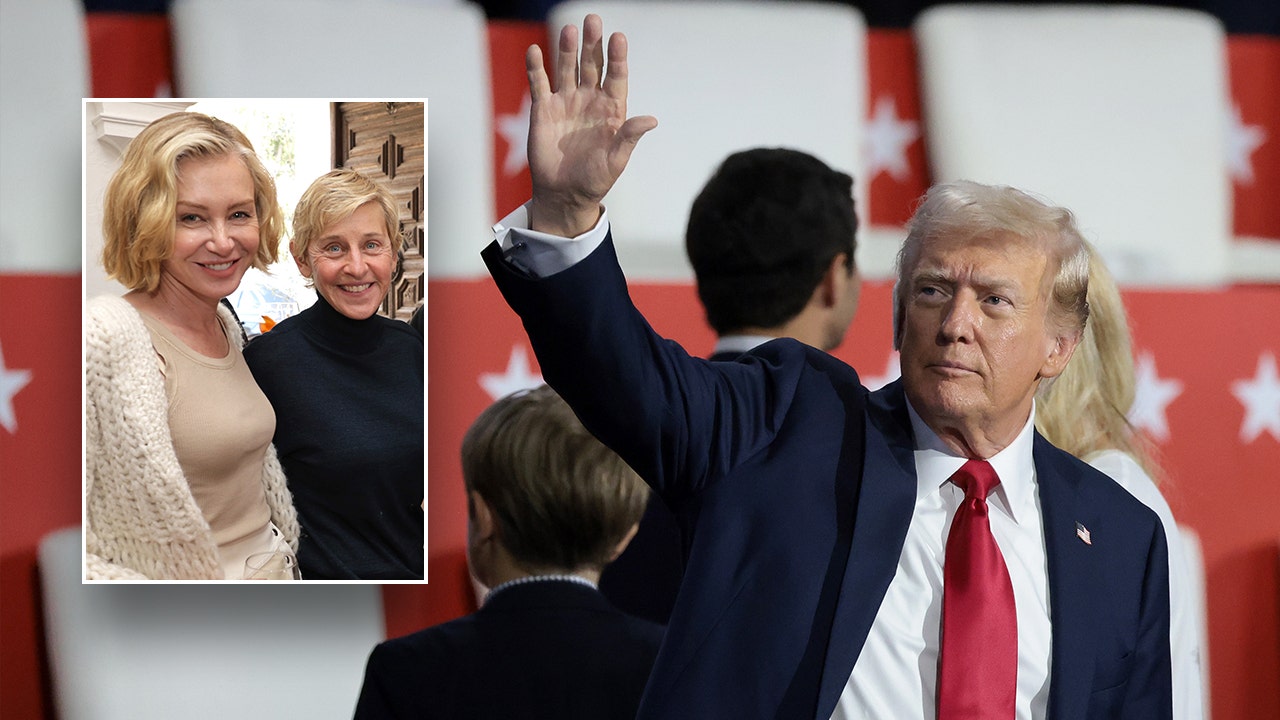Entertainment
O.J. Simpson’s legacy? The cable news machine that brought us President Trump | Opinion
O.J. Simpson dies at 76 after battle with cancer
The family of O.J. Simpson announced he has succumbed to his battle with cancer. He was 76.
In the wake of his death — Thursday, at age 76, from cancer — little more needs to be said about O.J. Simpson, the man.
Mountains of media have explored his life, and his trial for the murder of his wife Nicole Brown and Ron Goldman. Almost 30 years after the crime, there seems to be a cultural consensus that, yes, he did it, and that the jury’s not guilty verdict was logical and understandable.
The physical and circumstantial evidence overwhelmingly pointed to Simpson as the killer. No one has produced evidence for a credible alternative theory for the crime. At the same time, the prosecution botched its case, allowing Simpson’s high-powered legal team to create reasonable doubt among a jury that saw their worst fears about the LAPD laid out before them.
But the cultural phenomenon that was “O.J.” was no more about Simpson than it was about Brown and Goldman. It wasn’t about the “dream team” or DNA or domestic violence or race in America, either. O.J. Simpson’s true legacy is, ultimately, the leviathan entertainment/news complex his trial birthed.
OJ Simpson Bronco chase riveted America. The memory is haunting, even after his death.
O.J. proved that unserious coverage could turn news into enormously profitable entertainment content, and we’re still reeling from the ways the O.J. case revolutionized the production and consumption of news in the United States. Indeed, the beast wrought during the O.J. trial might end up breaking our democracy.
The ‘trial of the century,’ night after night after night
In 1994, just a few years removed from the Gulf War, cable news and headline-grabbing trials were nothing new. But the nature of war coverage requires a modicum of sobriety. Peter Arnett wasn’t forward-promoting CNN’s next show from a Baghdad rooftop as bombs fell around him. Other big trials of the day, like the parent-murdering Menendez brothers or mafioso John Gotti, attracted deeply dedicated but niche audiences.
O.J. was, in the parlance of modern times, intersectional. Sports, celebrity, race, domestic violence, police misconduct, true crime, criminal justice equity — you name it, there was something about this story to intrigue every viewer.
The saga also lasted a long damn time. From June 1994 through October 1995, O.J.-dominated news cycles were a kind of cinema verité soap opera filled with ratings gold — the chase, the glove, Mark Fuhrman’s n-word testimony, the verdict, Marcia Clark’s haircut — that elevated cable news from a dorky corner of broadcasting to the main stage of our entertainment universe.
Stars were born. Greta Van Susteren. Jeffrey Toobin. Dan Abrams. Harvey Levin. All leveraged O.J. coverage into superstar media careers, even as the public mostly forgot about Kato Kaelin (the poolboy) and Lance Ito (the judge).
When the verdict came down, countless news outlets (even Oprah got in on this bit) juxtaposed images of dejected white crowds with jubilant Black crowds, presented as a very serious and somber statement about race relations in the U.S. But in truth, little about race or how race shaped perceptions of this very specific murder trial was ever explored with any depth. It was performative exercise of confirmation bias: Of course, *they* reacted that way, said everyone, with almost zero self-awareness.
A billion-dollar media circus
More than 20 years later, Ezra Edelman’s nearly eight-hour documentary “O.J.: Made in America” finally delivered on the promise of a meaningful examination of how race in America affected the O.J. Simpson trial. But in 1995, few gave the issue that level of thoughtfulness or care.
O.J.-era news creators were, as “Succession” media mogul Logan Roy said, “not serious people.” The real-life Logan Roys, Rupert Murdoch and Ted Turner, liked it that way.
O.J. Simpson just died. Is it too soon to talk about his troubled past?
One study suggests the O.J. case generated more than $1 billion in media and merchandising revenue. How can you keep reporters and producers on the city council beat after they’ve seen the bright lights of Brentwood?
No one even tried.
Instead, news, in particular TV news, and especially cable news, chased the dragon of the O.J. high. It’s not just that celebrity scandals and true crime have crowded out issues of national policy on home pages and first segments. Political news has become more often about spectacle than substance.
Think about how some outlets embarrassed themselves critiquing Gov. Gretchen Whitmer’s style choices at a State of the State. Or the sheer stupidity of on-air focus groups analyzing presidential debates.
It changed the way I consume news, too. I’m not proud. That’s just how it is.
Enter Trump, center stage
It’s no surprise that in this orgy of scandal and stupidity, Donald Trump was able to transform from a multi-time bankrupted self-parody into a serious political figure, largely by claiming Barack Obama wasn’t born in the U.S.
There was no evidence for the charge. No one believed it, not even Trump. But, like the nightly voyeuristic indulgence of the O.J. trial, listening to a blowhard game show host bloviate about birth certificates held audiences through blocks of commercials for disposable catheters and reverse mortgages. Trump’s birtherism was such a draw that tv shows would let him call in for phone interviews. Not just Fox News, either. Even MSNBC happily took Trump’s calls to discuss Obama’s origins or Hillary’s emails or any other thing he wanted to chat about.
It was all too entertaining to ignore.
The burlesque was so farcical that that that Paddy Chayefsky likely would have found it too absurd to include in “Network.” Less farcical is the fact that Trump, based on the policy proposals collected as Project 2025, seems ready to undo the modern democratic society if he wins in November.
The spectacle Trump created proved to be a reliable ratings driver in the post-O.J. news climate and that, in turn, created the impression among viewers that he was a political voice worth taking seriously. Serious analysis of his potential agenda is less exciting, so it receives less coverage than, say, his gold sneaker grift.
The very fact that I’m sneaking a Project 2025 warning on the backend of a column about O.J. speaks to that dysfunction. Then again, newspapers weren’t shopping for Project 2025 takes on a rainy April morning. They wanted O.J.
Even in death, O.J. Simpson commands eyeballs.
RIP, Nicole and Ron. At the very least, you two deserved better.
Jeff Wattrick is a freelance writer who lives in Grosse Pointe Park. Submit a letter to the editor at freep.com/letters.










